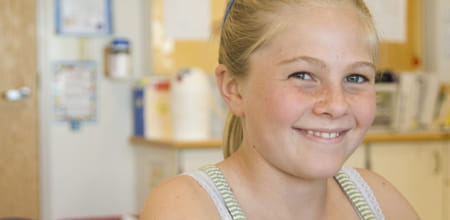Inpatient Care

What you need to know when you are an inpatient in the cancer unit at Cincinnati Children's.

What you need to know when you are an inpatient in the cancer unit at Cincinnati Children's.
The whiteboard is a communication tool designed to facilitate the consistent sharing of information among the patient and/or family, nurse, and extended care team. It will be utilized to identify the care team for the shift, the plan of care for the shift, and any additional, essential patient care information.
Every morning a team of doctors, nurses, pharmacists, dietitians and social workers perform healthcare rounds. Families and patients are encouraged to take part in daily morning rounds. This is a great opportunity to ask the team any questions you might have. Doctors and nurses are available 24 hours a day to answer any questions or concerns.
Throughout each shift, nursing staff will obtain vital signs (heart rate, respiratory rate, blood pressure, temperature and oxygen saturation), conduct head-to-toe assessments, administer ordered medications, inquire about intake and output, education and answer questions, and complete various other patient-specific tasks (for example, dressing changes, site assessments). At a minimum, the nurse will be in the patient room every hour. It is important to note that many tasks are time-specific.
Each patient has a Nursing Care Team, which helps improve continuity of care. If you would like a nurse to be added to your care team, simply ask the nurse, the health unit coordinator (HUC), or a clinical nurse manager to update your team.
The aim of both OT and PT is to help you stay strong and active so you are ready to return to activities you love.
Around every 30 days we will ask you to move rooms. The goal is to be able to provide you with the cleanest space possible over a long period of time, including a new bed / crib.
Clean hands protect everyone. Our goal is to have families play their part in keeping patients safe. Germs are everywhere. Help us stop germs from spreading by cleaning your hands. We care about you and your child’s health. Doctors, nurses, friends, family, and you … everyone who enters and exits your child’s room should clean their hands. Help us keep germs in their place. It’s OK to ask. Not sure if your care provider has cleaned their hands? Please ask. We value hand hygiene.